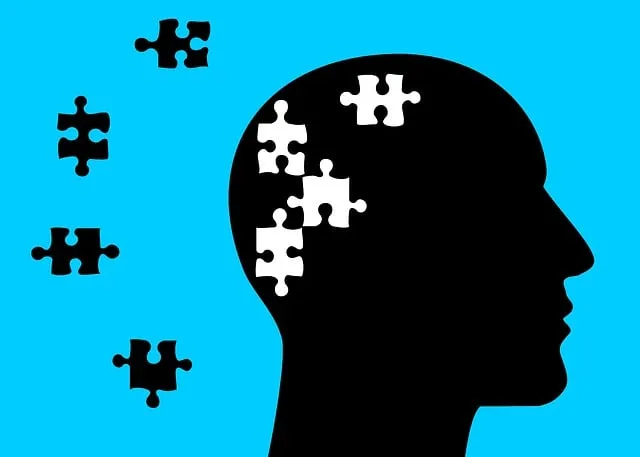The Lakewood Kaiser mental health programs take a holistic approach to well-being, focusing on resilience, communication, crisis intervention, and journaling. Structured sessions help participants express emotions openly, fostering healthier relationships and improved emotional health. These programs teach stress management, mindfulness, and personalized coping mechanisms, promoting long-term mental wellness. By integrating RFM (Resilience, Flexibility, Mastery) exercises into daily routines, Lakewood Kaiser enhances emotional intelligence and prevents depression and burnout. Success is measured through self-reported surveys, interviews, and behavioral observations, tracking improvements in emotional regulation, coping skills, and positive thinking patterns.
“Discovering the path to resilience begins with understanding Lakewood Kaiser’s pioneering mental health programs, a comprehensive approach designed to empower individuals. This article explores how the RFM (Resilience, Flexibility, Mastery) model, integrated within these programs, can transform lives. We delve into practical strategies for implementing RFM exercises, offering insights for professionals and caregivers. Additionally, we examine evaluation methods to measure the long-term impact on mental well-being, showcasing the power of these programs in fostering resilience.”
- Understanding Lakewood Kaiser Mental Health Programs: A Foundation for Resilience
- Implementing RFM (Resilience, Flexibility, and Mastery) Exercises: Strategies for Effective Practice
- Measuring Success: Evaluating the Impact of RFM on Building Long-Term Resilience in Individuals
Understanding Lakewood Kaiser Mental Health Programs: A Foundation for Resilience

The Lakewood Kaiser mental health programs offer a comprehensive foundation for building resilience among individuals facing various challenges. These programs are designed to empower participants with effective communication strategies, crucial for navigating life’s complexities. Through structured sessions, users learn to express their thoughts and feelings openly, fostering healthier relationships and enhancing emotional well-being. The approach integrates crisis intervention guidance, ensuring individuals have tools to manage stressful situations effectively.
Moreover, these programs encourage mental wellness journaling exercises, providing a safe space for reflection and self-discovery. This practice allows users to track their progress, identify triggers, and develop personalized coping mechanisms. By combining communication skills, crisis management techniques, and reflective journaling, the Lakewood Kaiser mental health programs create a robust framework for building resilience and promoting long-term mental wellness.
Implementing RFM (Resilience, Flexibility, and Mastery) Exercises: Strategies for Effective Practice

Implementing RFM (Resilience, Flexibility, and Mastery) exercises is a strategic approach to enhancing mental well-being, particularly through Lakewood Kaiser’s comprehensive mental health programs. These exercises are designed to build resilience against life’s challenges, fostering adaptability in the face of change and cultivating a sense of mastery over one’s emotions and actions. For effective practice, it’s crucial to integrate RFM into daily routines. This can involve setting aside dedicated time for mindfulness practices, such as meditation or deep breathing, which enhance emotional intelligence and stress management.
Additionally, engaging in activities that promote flexibility—both physically and mentally—is vital. At Lakewood Kaiser, programs often incorporate exercises like yoga or tai chi, encouraging participants to embrace a range of responses to demanding situations. Mastery is cultivated through setting achievable goals and celebrating small victories, reinforcing a sense of self-efficacy. By combining these elements, individuals can develop a robust resilience framework, effectively preventing depression, burnout, and fostering overall mental health.
Measuring Success: Evaluating the Impact of RFM on Building Long-Term Resilience in Individuals

Measuring success when implementing RFM (Resilience, Flexibility, and Mindfulness) exercises is a crucial step in understanding their impact on building long-term resilience in individuals. The effectiveness of these programs can be evaluated through various methods, such as self-reported surveys, interviews, and behavioral observations. At Lakewood Kaiser mental health programs, professionals often assess changes in emotional regulation, coping skills development, and positive thinking patterns among participants. These assessments help determine the extent to which RFM exercises have enhanced individuals’ ability to navigate challenging situations and promote overall well-being.
Additionally, tracking improvements in stress reduction methods and changes in lifestyle behaviors can provide valuable insights into the program’s success. Over time, participants may exhibit better stress management techniques, increased adaptability to life’s pressures, and a more positive outlook, all of which are indicators of enhanced resilience. By utilizing these evaluation strategies, Lakewood Kaiser mental health programs aim to ensure that RFM exercises not only offer immediate benefits but also foster lasting resilience in individuals, empowering them to face future challenges with greater confidence and composure.
The implementation of Lakewood Kaiser mental health programs’ RFM exercises offers a powerful approach to building long-term resilience. By combining strategies that foster flexibility, mastery, and resilience, individuals can develop a robust foundation for navigating life’s challenges. Effective practice and measurement of success through these exercises have shown promising results in enhancing overall well-being. This holistic approach, grounded in the Lakewood Kaiser model, has the potential to revolutionize mental health support, empowering folks to thrive amidst adversity.






